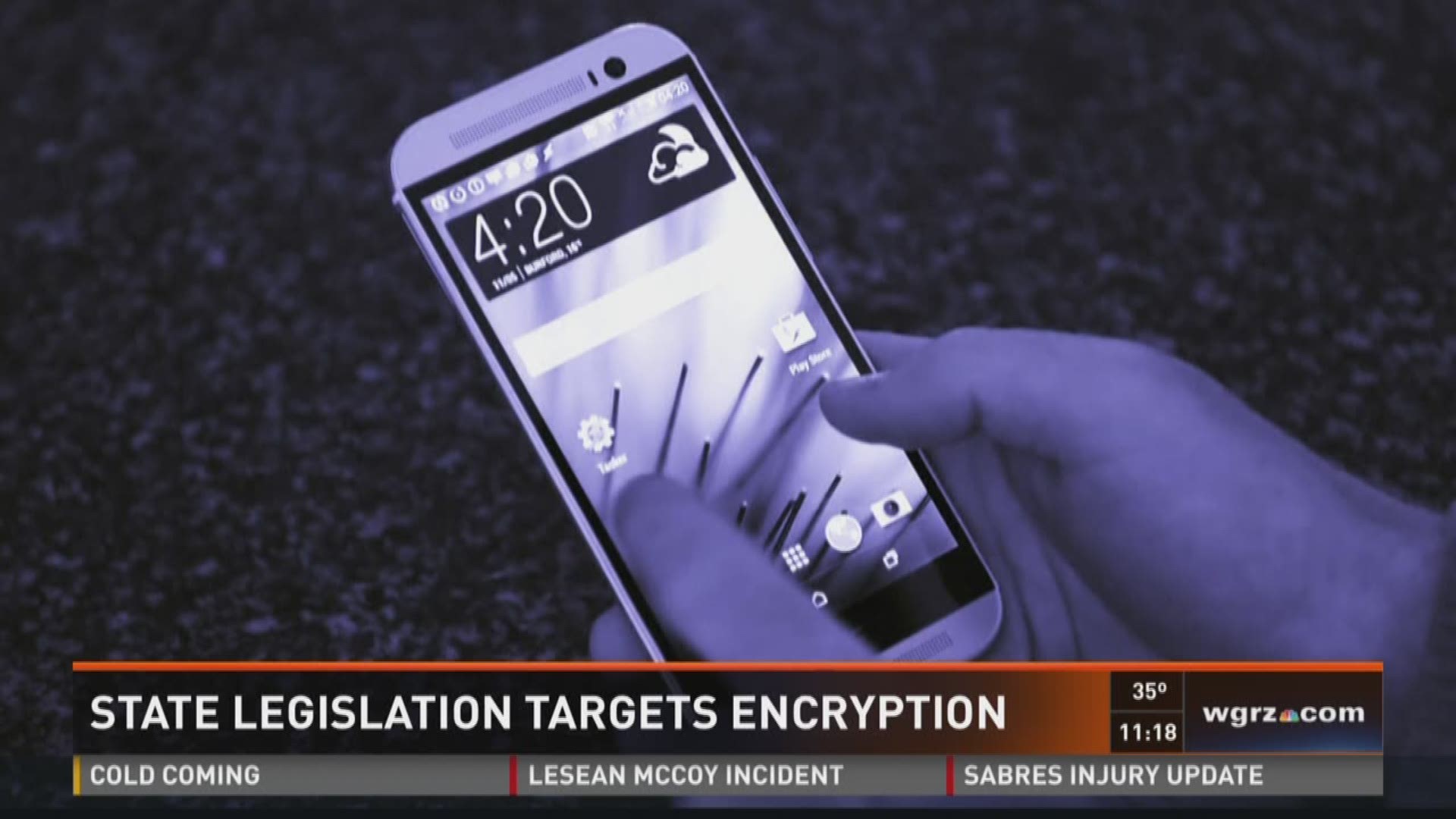To argue against smartphone "encryption," the District Attorney's Office in Manhattan points straight to a prison phone conversation.
"If our phones is running on the iO8 software, they can't open my phone," an inmate told a friend in a recording captured by the Department of Corrections. "That might be another gift from God."
This excerpt appears in the district attorney's 42-page report about encryption, which essentially concluded this fall that technology companies such as Apple and Google have risked public safety by creating such impenetrable protections for smartphone users. Apple's iOS 8, released in 2014, changed the face of security by using encryption as a default setting, meaning users with their personalized passcodes are the only ones who can access their phones.
The Manhattan District Attorney argues that encryption has blocked law enforcement from accessing vital investigative information through search warrants, since companies cannot provide this information if the users don't willingly allow police to search their data. Between Sept. 17, 2014 and Oct. 1, 2015, the report claims the district attorney's office was "unable to execute" roughly 111 search warrants because they attempted to request data from iOS 8 devices. These investigations included homicide, attempted murder, sexual abuse, assault, robbery and sex trafficking.
The district attorney's report, which garnered the support of all 62 district attorneys across the state of New York, has led to proposed legislation in the Assembly, which would penalize companies who use encryption with heavy fines. Anti-encryption legislation has surfaced at the Congressional level, and the FBI itself has cautioned against encryption.
It's all part of a classic post-9/11 debate: the balance of civil liberties versus national security. Tech companies -- as evidenced in this strong letter to President Barack Obama, obtained by the Washington Post -- have consistently argued that encryption is a critical privacy measure for its users, protecting them from hackers, computer spies and other criminals. In that letter, they also defended encryption as a major economic security protection, since it believes American customers need to be able to trust their devices to make business transactions.
But members of law enforcement have argued that encryption instead allows criminals and terrorists to run free, since police don't have any power to search their phones if they cannot break through the protections.
Steven MacMartin, who currently runs the Homeland Security program at Medaille College, said it all boils down to the Fourth Amendment. Here's how MacMartin explains it: If police wanted to search a box, a file cabinet or a desk drawer in the old days, they'd need to first obtain a search warrant from a judge. The Fourth Amendment protects citizens against unreasonable searches, so police need to make their case to a judge to get that warrant.
An encrypted smartphone, however, is different from a drawer or a cabinet or a box, MacMartin said.
"In essence," MacMartin said, "you have an unbreakable lock."
MacMartin said there's a public misconception: the district attorney's office and proposed legislation at state and federal levels would not give police direct access to the smartphone information. Instead, it would allow the companies themselves to access it -- just as they did with previous devices -- in order to provide authorities with information to comply with a search warrant.
"Everyone uses electronic devices these days. Everyone. Electronic devices are used from the simplest crimes to the most complex crimes," MacMartin said. "I think Apple and Google have both gone out saying, 'we can provide you with a device that no one can look into'. I don't know there's an advantage here, other than a sales advantage."
The companies, however, would clearly disagree.
"We request that the White House instead focus on developing policies that will promote rather than undermine the wide adoption of strong encryption technology," they wrote in their letter to President Obama. "Such policies will in turn help to promote and protect cybersecurity, economic growth, and human rights, both here and abroad."

